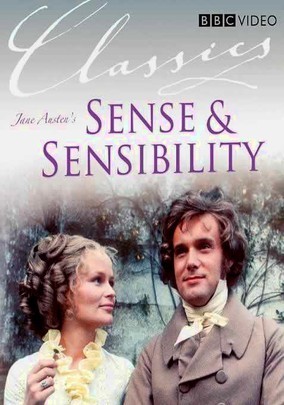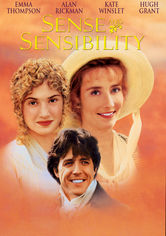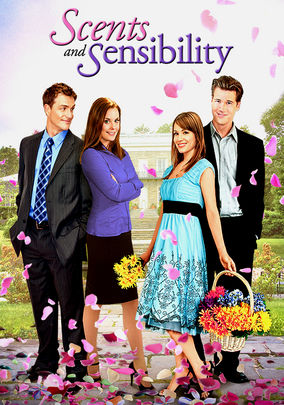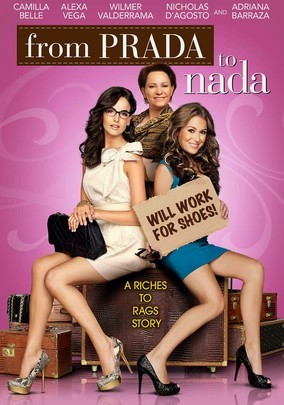Book Review: Sense and Sensibility, by Jane Austen
The Dashwood sisters find husbands, because it's Austen of course.

Originally published in 1811, 409 pages. Available for free on Project Gutenberg.
Marianne Dashwood wears her heart on her sleeve, and when she falls in love with the dashing but unsuitable John Willoughby she ignores her sister Elinor's warning that her impulsive behaviour leaves her open to gossip and innuendo. Meanwhile Elinor, always sensitive to social convention, is struggling to conceal her own romantic disappointment, even from those closest to her. Through their parallel experience of love-and its threatened loss-the sisters learn that sense must mix with sensibility if they are to find personal happiness in a society where status and money govern the rules of love.
Jane Austen wrote six novels (I'm not counting her juvenilia and unfinished ones, like Sanditon), and I've now read all of them.
Sense & Sensibility, I'm afraid, has to rank as my least favorite. Which is not to say it's a bad book - one of them has to be my least favorite, and this one happens to be it. I found it somewhat formulaic (yes, I realize this was her first book, so it was actually the prototype), and there wasn't much new or witty in it compared to the banter of Elizabeth and Mr. Darcy, or the endearing busybody Emma, or melodramatic teenager Catherine Morland.
The Dashwood sisters Elinor and Marianne are "Sense" and "Sensibility" respectively - Elinor, the older one, is the responsible older sister who is a model of propriety and never lets her feelings govern her actions, while Marianne is the sensitive, romantic one who of course will be the one to swoon over a cad who dumps her.
As the novel opens, their father has just passed away, leaving his considerable estate to his estranged son, the sisters' half-brother, with an admonishment to take care of his step-sisters and stepmother.
When he gave his promise to his father, he meditated within himself to increase the fortunes of his sisters by the present of a thousand pounds a-piece. He then really thought himself equal to it. The prospect of four thousand a-year, in addition to his present income, besides the remaining half of his own mother's fortune, warmed his heart, and made him feel capable of generosity. "Yes, he would give them three thousand pounds: it would be liberal and handsome! It would be enough to make them completely easy. Three thousand pounds! he could spare so considerable a sum with little inconvenience." He thought of it all day long, and for many days successively, and he did not repent.
Cousin John naturally proves to be a wimp who lets his wife talk him out of giving his step-relations a damn thing. The core of the story - two sisters accustomed to wealth being basically kicked out of their home and into poverty thanks to an unjust inheritance and an uncharitable relation - is kept in one form or another in every film version (see below). After that, the details of the romances for the two sisters vary somewhat in adaptations, but there is always a Lucy.
Lucy Steele, as the grasping social climber who has entrapped the man Elinor falls in love with, is one of several "villains" in this book, the others being the standard Austen rake Mr. Willoughby, and (arguably) John Dashwood's wife Fanny.
Like all Austen novels, even the villains aren't "evil," just self-interested and sometimes crass.
The whole of Lucy's behaviour in the affair, and the prosperity which crowned it, therefore, may be held forth as a most encouraging instance of what an earnest, an unceasing attention to self-interest, however its progress may be apparently obstructed, will do in securing every advantage of fortune, with no other sacrifice than that of time and conscience.
Like all Austen novels, of course, after several romantic mishaps, misunderstandings, and broken engagements, the two Dashwood sisters will wind up married to wealthy gentlemen.
Why did I like this book less than the others? Besides the fact that by now it's just another iteration of the same plot, I simply didn't find Elinor or Marianne that interesting. The contrast between their personalities, a deliberate juxtaposition Austen used to examine the merits and flaws of giving oneself to "sense" or allowing oneself to be "sensible" (the more appropriate modern word would be "sensitive") makes it its own story, as indeed, all of Austen's novels, despite having the same core settings and plot points, are unique executions of the same theme. There is nothing wrong with the doing the same thing differently, and Austen does it very well.
But if someone who has never read Austen before asked me which book to start with, I would probably not recommend this one. And I wouldn't say anyone who has read two or three other Austen novels needs to read this one, unless they really like Austen or are a completist.
Speaking of being a completist...
Boy this book has a lot of adaptations
I watched seven adaptations of Sense and Sensibility. It actually kind of baffles me that this book has had more film treatments than Pride & Prejudice or Emma.
Four of the adaptations below were basically direct portrayals of Austen's novel, while three are modern reimaginings - there's a Mormon version, a Latina version, and a Bollywood version!
Sense and Sensibility (1971)

The first BBC adaptation, never broadcast in the US. Since I've watched all the Jane Austen BBC adaptations now, I've become quite familiar with the styles of the 70s, 80s, and 90s productions. This was one of their earlier ones and the actors weren't the best of the bunch; like most of the 70s versions, it looks much like a filmed play.
Preserving the look and style of Austen, and most of her lines, there were a few changes in the dialog but for the most part, like most of these three-hour productions, it follows the entire novel faithfully, leaving almost nothing out. Also like most of these 1970s productions, it's rather boring unless you're an Austen purist who just loves all things Austen.
Sense and Sensibility (1981)

This early 80s BBC production is the lengthiest adaptation.
Fanny's hysterical shrieking fit when she learns of Edward's engagement to Lucy has to be one of the worst acting jobs I've ever seen.
Other than that, it was about equal to the 1971 version - long and faithful but not terribly dramatic.
Sense and Sensibility (1995)

This was the last big Hollywood version, directed by Ang Lee and starring Emma Thompson, Kate Winslet, Alan Rickman, and Hugh Grant. It is not a bad production, and doesn't depart from Austen's novel as much as many Hollywood adaptations have done, but it's neither the prettiest nor the most faithful version to watch.
Sense and Sensibility (2008)

The most recent BBC version, filmed and acted as somberly as most modern BBC dramas, is lengthy and lavish, with scenes and dialog not from the book. While not quite as direct a page-to-screen translation as the earlier miniseries, this one is probably my favorite. It captures the spirit of Austen's novel and the personalities of the Dashwood sisters, and was also one of the most visually appealing productions.
Scents and Sensibility (2011)

Produced by SunWorld pictures, a tiny, independent studio in Utah producing Mormon-friendly films, I only added this one to my list because it happened to be on Netflix.
This is one of those "modern-day adaptations" that plasters a contemporary rom-com over the bones of Austen's plot:
After their father is charged with swindling investors, Elinor and Marianne Dashwood must make their own way in the world. Having always been given everything they needed, they struggle to find jobs where being a Dashwood isn't a strike against them. While Elinor finds work as a janitor at a spa, Marianne finds a position at a marketing firm.
By "bones" I mean it borrows the names of Austen's characters and nothing else. The acting is bad, the plot is silly, and it's a low-budget chick flick with nothing to recommend it.
I Have Found It (2000)

Bollywood adaptations of Jane Austen novels, on the other hand, appear to be a thing - and they are kind of awesome.
This one starts with a jungle warfare scene. Then there is a model trying to lipsync to an advertising jingle. Then there are some girls swimming in pool, followed by a song with lyrics about chirping mynahs.
As an adaptation of Sense and Sensibility, it's almost unrecognizable, but I still kind of liked the dance numbers.
From Prada to Nada (2011)

And finally, there is From Prada to Nada, or "Sense & Sensibility in the Barrio." It borrows a few names and casts the two sisters as refugees from Beverly Hills who wind up in East L.A. Like the other "modern" versions above, it's only dimly recognizeable as based on Austen. Other than looking for the surviving bits of Austen's novel in this silly romance, there's no other reason to watch it.
Verdict: Sense and Sensibility has all the virtues of Jane Austen's other five novels, but it was one of her earliest, and the last one I read, which makes it suffer by comparison. No Austen novel is bad, and I enjoyed it, but it's not close to being my favorite. 7/10.
Also by Jane Austen: My reviews of Pride and Prejudice, Northanger Abbey, Mansfield Park, Emma, and Persuasion.
My complete list of book reviews.

Originally published in 1811, 409 pages. Available for free on Project Gutenberg.
Marianne Dashwood wears her heart on her sleeve, and when she falls in love with the dashing but unsuitable John Willoughby she ignores her sister Elinor's warning that her impulsive behaviour leaves her open to gossip and innuendo. Meanwhile Elinor, always sensitive to social convention, is struggling to conceal her own romantic disappointment, even from those closest to her. Through their parallel experience of love-and its threatened loss-the sisters learn that sense must mix with sensibility if they are to find personal happiness in a society where status and money govern the rules of love.
Jane Austen wrote six novels (I'm not counting her juvenilia and unfinished ones, like Sanditon), and I've now read all of them.
Sense & Sensibility, I'm afraid, has to rank as my least favorite. Which is not to say it's a bad book - one of them has to be my least favorite, and this one happens to be it. I found it somewhat formulaic (yes, I realize this was her first book, so it was actually the prototype), and there wasn't much new or witty in it compared to the banter of Elizabeth and Mr. Darcy, or the endearing busybody Emma, or melodramatic teenager Catherine Morland.
The Dashwood sisters Elinor and Marianne are "Sense" and "Sensibility" respectively - Elinor, the older one, is the responsible older sister who is a model of propriety and never lets her feelings govern her actions, while Marianne is the sensitive, romantic one who of course will be the one to swoon over a cad who dumps her.
As the novel opens, their father has just passed away, leaving his considerable estate to his estranged son, the sisters' half-brother, with an admonishment to take care of his step-sisters and stepmother.
When he gave his promise to his father, he meditated within himself to increase the fortunes of his sisters by the present of a thousand pounds a-piece. He then really thought himself equal to it. The prospect of four thousand a-year, in addition to his present income, besides the remaining half of his own mother's fortune, warmed his heart, and made him feel capable of generosity. "Yes, he would give them three thousand pounds: it would be liberal and handsome! It would be enough to make them completely easy. Three thousand pounds! he could spare so considerable a sum with little inconvenience." He thought of it all day long, and for many days successively, and he did not repent.
Cousin John naturally proves to be a wimp who lets his wife talk him out of giving his step-relations a damn thing. The core of the story - two sisters accustomed to wealth being basically kicked out of their home and into poverty thanks to an unjust inheritance and an uncharitable relation - is kept in one form or another in every film version (see below). After that, the details of the romances for the two sisters vary somewhat in adaptations, but there is always a Lucy.
Lucy Steele, as the grasping social climber who has entrapped the man Elinor falls in love with, is one of several "villains" in this book, the others being the standard Austen rake Mr. Willoughby, and (arguably) John Dashwood's wife Fanny.
Like all Austen novels, even the villains aren't "evil," just self-interested and sometimes crass.
The whole of Lucy's behaviour in the affair, and the prosperity which crowned it, therefore, may be held forth as a most encouraging instance of what an earnest, an unceasing attention to self-interest, however its progress may be apparently obstructed, will do in securing every advantage of fortune, with no other sacrifice than that of time and conscience.
Like all Austen novels, of course, after several romantic mishaps, misunderstandings, and broken engagements, the two Dashwood sisters will wind up married to wealthy gentlemen.
Why did I like this book less than the others? Besides the fact that by now it's just another iteration of the same plot, I simply didn't find Elinor or Marianne that interesting. The contrast between their personalities, a deliberate juxtaposition Austen used to examine the merits and flaws of giving oneself to "sense" or allowing oneself to be "sensible" (the more appropriate modern word would be "sensitive") makes it its own story, as indeed, all of Austen's novels, despite having the same core settings and plot points, are unique executions of the same theme. There is nothing wrong with the doing the same thing differently, and Austen does it very well.
But if someone who has never read Austen before asked me which book to start with, I would probably not recommend this one. And I wouldn't say anyone who has read two or three other Austen novels needs to read this one, unless they really like Austen or are a completist.
Speaking of being a completist...
Boy this book has a lot of adaptations
I watched seven adaptations of Sense and Sensibility. It actually kind of baffles me that this book has had more film treatments than Pride & Prejudice or Emma.
Four of the adaptations below were basically direct portrayals of Austen's novel, while three are modern reimaginings - there's a Mormon version, a Latina version, and a Bollywood version!
Sense and Sensibility (1971)

The first BBC adaptation, never broadcast in the US. Since I've watched all the Jane Austen BBC adaptations now, I've become quite familiar with the styles of the 70s, 80s, and 90s productions. This was one of their earlier ones and the actors weren't the best of the bunch; like most of the 70s versions, it looks much like a filmed play.
Preserving the look and style of Austen, and most of her lines, there were a few changes in the dialog but for the most part, like most of these three-hour productions, it follows the entire novel faithfully, leaving almost nothing out. Also like most of these 1970s productions, it's rather boring unless you're an Austen purist who just loves all things Austen.
Sense and Sensibility (1981)

This early 80s BBC production is the lengthiest adaptation.
Fanny's hysterical shrieking fit when she learns of Edward's engagement to Lucy has to be one of the worst acting jobs I've ever seen.
Other than that, it was about equal to the 1971 version - long and faithful but not terribly dramatic.
Sense and Sensibility (1995)

This was the last big Hollywood version, directed by Ang Lee and starring Emma Thompson, Kate Winslet, Alan Rickman, and Hugh Grant. It is not a bad production, and doesn't depart from Austen's novel as much as many Hollywood adaptations have done, but it's neither the prettiest nor the most faithful version to watch.
Sense and Sensibility (2008)

The most recent BBC version, filmed and acted as somberly as most modern BBC dramas, is lengthy and lavish, with scenes and dialog not from the book. While not quite as direct a page-to-screen translation as the earlier miniseries, this one is probably my favorite. It captures the spirit of Austen's novel and the personalities of the Dashwood sisters, and was also one of the most visually appealing productions.
Scents and Sensibility (2011)

Produced by SunWorld pictures, a tiny, independent studio in Utah producing Mormon-friendly films, I only added this one to my list because it happened to be on Netflix.
This is one of those "modern-day adaptations" that plasters a contemporary rom-com over the bones of Austen's plot:
After their father is charged with swindling investors, Elinor and Marianne Dashwood must make their own way in the world. Having always been given everything they needed, they struggle to find jobs where being a Dashwood isn't a strike against them. While Elinor finds work as a janitor at a spa, Marianne finds a position at a marketing firm.
By "bones" I mean it borrows the names of Austen's characters and nothing else. The acting is bad, the plot is silly, and it's a low-budget chick flick with nothing to recommend it.
I Have Found It (2000)

Bollywood adaptations of Jane Austen novels, on the other hand, appear to be a thing - and they are kind of awesome.
This one starts with a jungle warfare scene. Then there is a model trying to lipsync to an advertising jingle. Then there are some girls swimming in pool, followed by a song with lyrics about chirping mynahs.
As an adaptation of Sense and Sensibility, it's almost unrecognizable, but I still kind of liked the dance numbers.
From Prada to Nada (2011)

And finally, there is From Prada to Nada, or "Sense & Sensibility in the Barrio." It borrows a few names and casts the two sisters as refugees from Beverly Hills who wind up in East L.A. Like the other "modern" versions above, it's only dimly recognizeable as based on Austen. Other than looking for the surviving bits of Austen's novel in this silly romance, there's no other reason to watch it.
Verdict: Sense and Sensibility has all the virtues of Jane Austen's other five novels, but it was one of her earliest, and the last one I read, which makes it suffer by comparison. No Austen novel is bad, and I enjoyed it, but it's not close to being my favorite. 7/10.
Also by Jane Austen: My reviews of Pride and Prejudice, Northanger Abbey, Mansfield Park, Emma, and Persuasion.
My complete list of book reviews.